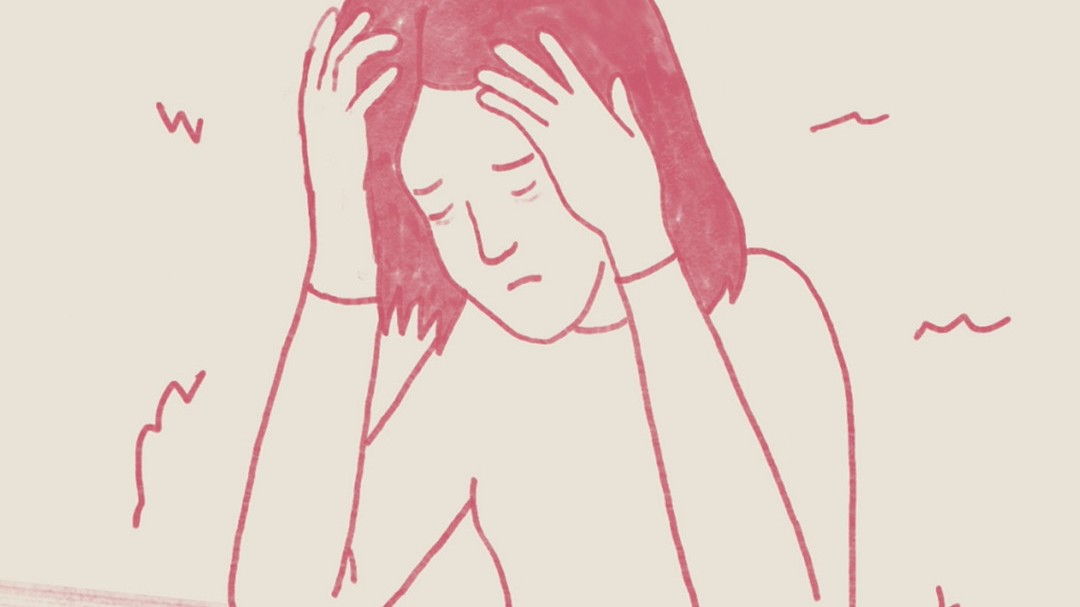“Put your hands behind your knees," shouts the title character in Deadpool 2, "and get down on your head!”While the self-regenerating meat sack in a red and black suit is usually steady with quips and comebacks—even when performing gun fu or slicing through goons with twirling swords—this scene takes Deadpool out of his element of gleeful violence. He’s making first arrest of a renegade mutant as a (minor spoiler alert) trainee of the X-Men in front of TV cameras and the watchful, CGI-generated eyes of his wannabe mentor, Colossus. Under such pressure, the “merc with a mouth” stumbles over his words.Such awkward verbal flubs are common joke lines in sitcom and movie scripts—as anyone who has seen I Love You, Man knows—but it’s not uncommon for people in real life to fumble their words during an anxiety-inducing moment, be it a chance encounter with a crush, a run-in with an ex, meeting one’s idol, or trying to fit into a high-prestige group. “Everyone has these moments,” says psychologist Ty Tashiro, author of Awkward: The Science of Why We’re Socially Awkward and Why That’s Awesome. “Anxiety is one of the biggest predictors of flubbing words.”Anxiety and awkwardness create a lot of mental noise and distraction, which can drain mental resources from other processes, like finding and using the correct words. “If you experience strong emotion, fear, or any negativity-based feeling, it makes it harder to figure out these words,” Tashiro says. Part of the reason is that awkward people engage in bottom-up brain processing, Tashiro says. They tend to see situations as an accumulation of details to absorb. “In top-down processing, a person goes to a party and their first thought is that the tone of the room is positive or neutral. Most people who are bottom-up [in their brain processing] are putting together the pieces and are in a rush to put it together.Awkward people, who are self-critical and analyze environments for potential threats to their insecurities, are doing more mental work than non-awkward people capable of “joining in the sing-song of the moment,” Tashiro says. “Especially because of speed demands, it’s amazing how many cues [awkward] people are taking in,” he adds. When a person is not able to focus on speech, non-word placeholders, like “ugh” and “um” sneak in, and “Nice to meet you” becomes “Niece to feed you.”This kind of misspeaking is more common to impromptu conversations than planned ones, says Jason Moser, director of the Clinical Psychophysiology Lab at Michigan State University, who frequently researches anxiety. Public speaking is a common fear, but planned speeches have a structure that makes it less likely you'll trip over your words, Moser says. “In conversational speech, you have to react on the fly.”
More from Tonic:
Anxious people, according to Moser’s research, have a greater tendency to monitor themselves for errors and chastise themselves in the moment, creating another distraction from managing their word flow. While most the research on anxiety focuses on people with anxiety disorders, the theory of many psychologists is that “trait anxiety and state anxiety work the same way,” Moser says. “The same negative thoughts have the same effect.” So the mental overload that causes speaking difficulty for people with anxiety disorders also causes it for people with average temperaments at particularly anxious times.
Advertisement
Advertisement
More from Tonic:

Anxious people, according to Moser’s research, have a greater tendency to monitor themselves for errors and chastise themselves in the moment, creating another distraction from managing their word flow. While most the research on anxiety focuses on people with anxiety disorders, the theory of many psychologists is that “trait anxiety and state anxiety work the same way,” Moser says. “The same negative thoughts have the same effect.” So the mental overload that causes speaking difficulty for people with anxiety disorders also causes it for people with average temperaments at particularly anxious times.
A study from the National Institute of Mental Health, published in 2013, tried to replicate the impact of anxiety on mental tasks in non-anxious people. Twenty-seven all-around healthy individuals agreed to complete a series of tasks testing their spatial reasoning and memory of letter sequences. Some received a slight electric shock at random intervals, meant to recreate the effect of anxiety. Unsurprisingly, the people under constant threat of pain performed worse than those who were not.A 2001 paper in the journal Language and Speech tried to find links between situations and rates of disfluency, a category of speech blunders that includes false starts, accidental repetitions of words, filler utterances (like “ugh” and “um”) and incoherent mumbling. The researchers found that errors were more common in mentally demanding situations. (Subjects were separated by age category, as older people are naturally more prone to disfluencies.)Speakers were more error-prone when they had to discuss an abstract concept than an easier one: Some subjects were tasked with completing geometric puzzles together, others with discussing photos of children. The pairs putting shapes into a whole had 13 percent more speaking errors than the pairs cooing over cute kids. Speakers also made more flubs when assigned the role of directing the conversation, seven disfluencies per 100 spoken words compared to five for subjects designated “matchers” who merely had to participate in the conversation.The results would not be a surprise to anyone trying to find the rights words under a torrent of nervousness: The greater the mental load, the more difficult it was to speak.Sign up for our newsletter to get the best of Tonic delivered to your inbox.
